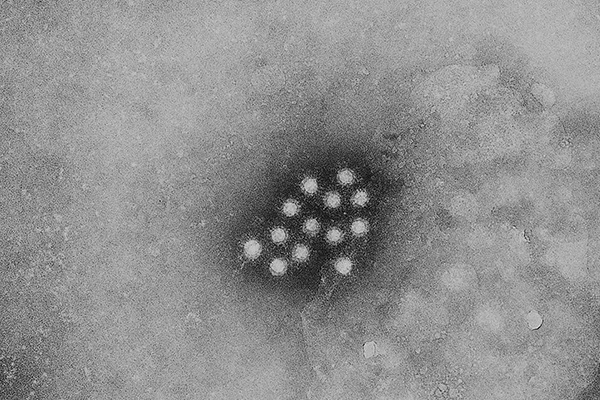
Fisting
9. May 2019
Hepatitis A
10. February 2022Gonorrhoea
Gonorrhoea is – together with chlamydia – one of the most common sexually transmitted infections. The gonococcus bacteria can be easily transmitted and usually affect the mucous membranes of the throat, rectum or urethra.
Transmission
Gonococci can be transmitted during almost all sex practices that involve direct contact of (infected) mucous membranes.
Gonorrhoea is easily transmissible. The bacteria can be passed on not only during fucking, but also during sucking, licking, rimming, fisting, mutual wanking and intense kissing. Outside the human mucosa, however, the bacteria die quickly (which is why transmission via toilet seats, for example, is not possible).
Protection
- Condoms and internal condoms can reduce the risk of infection. You can also use these to reduce transmission through shared toys.
- When fisting or fucking with more than one partner: Change the condom, gloves or toy before fucking someone else.
- Make sure you are protected against HIV. With a gonorrhoea infection, the risk of HIV transmission can increase, as the HI virus finds an easier way into the body through the inflammation and the associated damage to the mucous membranes.
- In people with untreated HIV infection who have inflammation of the cervix, rectum or urethra caused by gonococci, the risk of HIV transmission to others is increased because inflamed mucous membrane and inflammatory secretions contain particularly large numbers of viruses – also called “piggyback infection”.
- Regular tests help to detect an infection early and treat it as quickly as possible.
- Inform your sex partners and wait for the medical treatment to finish before having sex again.
Symptoms
Often gonorrhoea causes no or vague symptoms. As a result, the infection is often detected and treated late. In some cases, an untreated infection leads to infertility.
Gonorrhoea of the genitals and / or urethra
- After about three days, itching, burning and pus may appear.
- Discharge from the tail (yellow, milky and usually malodorous), also called “bonjour drops”.
- Painful inflammation of the prostate or epididymis possible.
- Scarred adhesions in the vas deferens can lead to inability to conceive.
Although gonorrhoea can heal on its own, it can also become chronic. The pathogens can then continue to be transmitted to others and spread throughout the body.
Gonorrhoea in the ass and / or throat
- Often asymptomatic
- Itching, burning
- Pain while fucking
- Mucilaginous admixtures during defecation
- Sore throat
The pathogens in gonorrhoea in the throat usually disappear by themselves after some time.
Test & Treatment
Gonorrhoea can be diagnosed via a swab or with the help of a urine sample and is easily cured with antibiotics.
The tests can be done by doctors of urology or skin and sexually transmitted diseases. In many sexual health centers, AIDS support centers or testing projects such as Checkpoints, the testsand consultations are often offered anonymously and at low cost.
Further information is available from the Deutsche Aidshilfe here.
